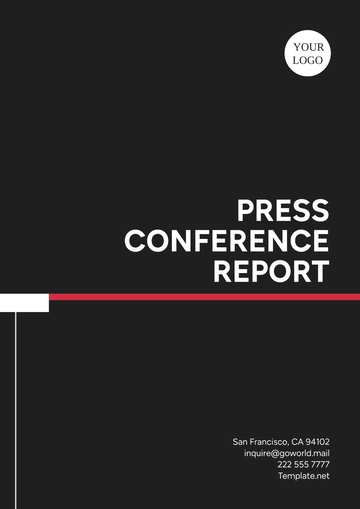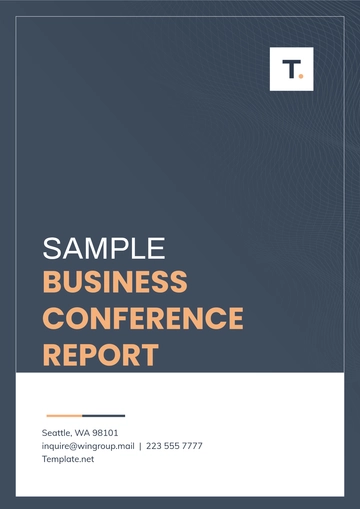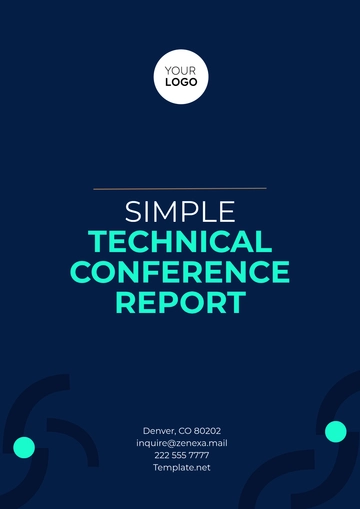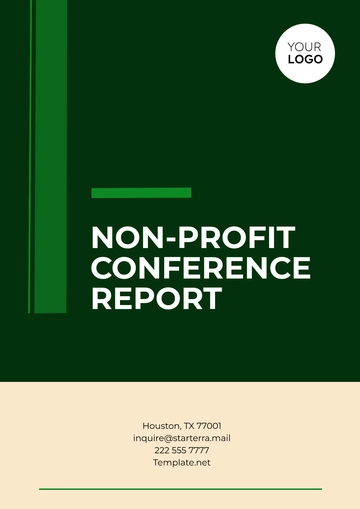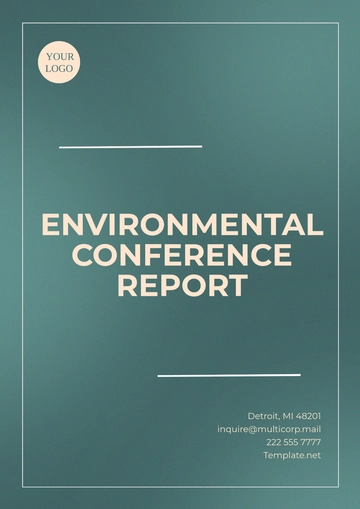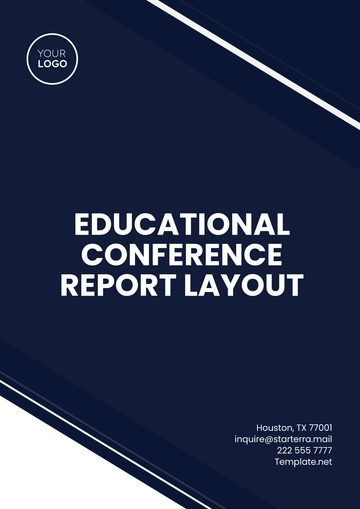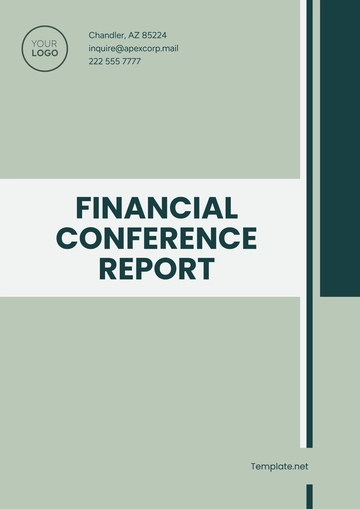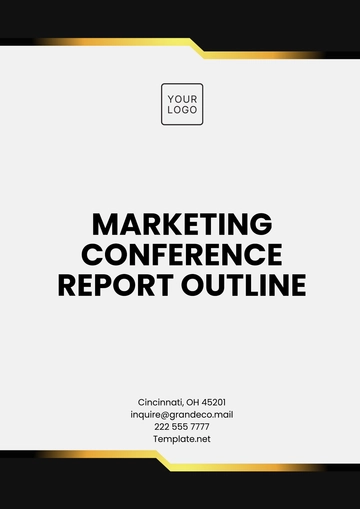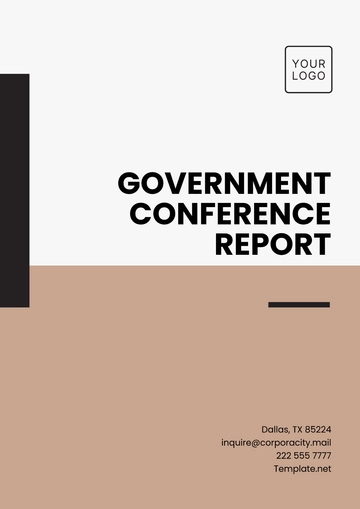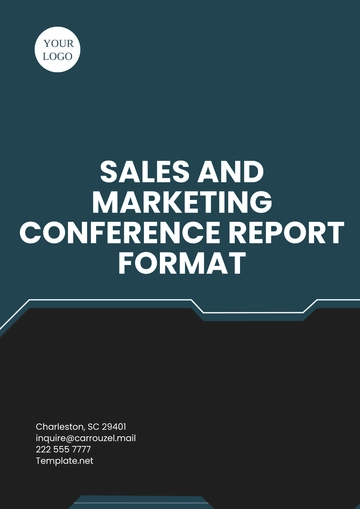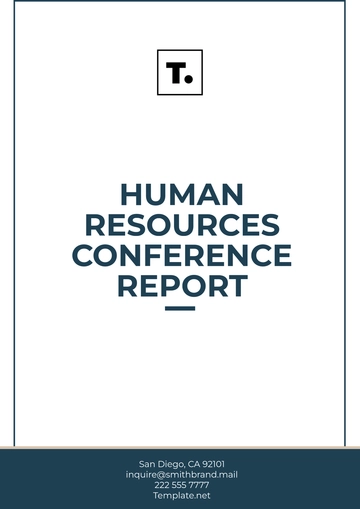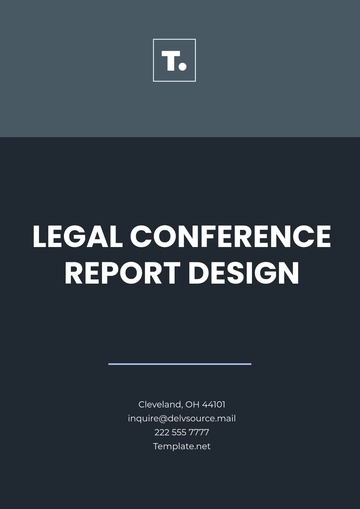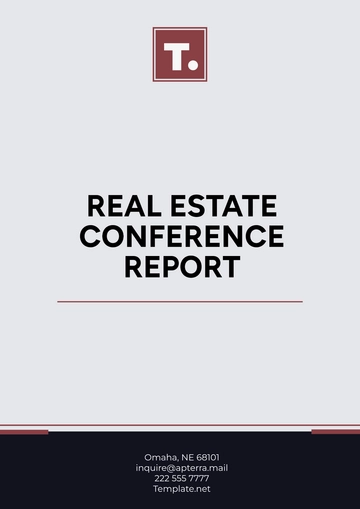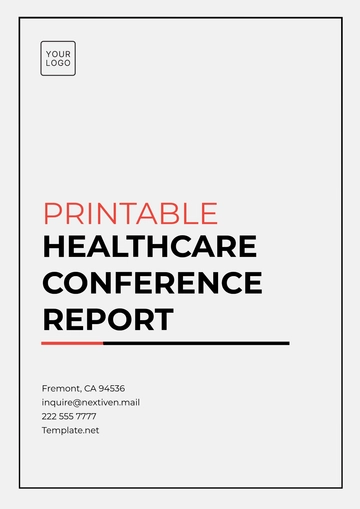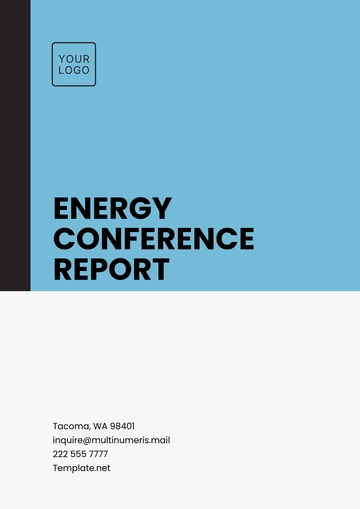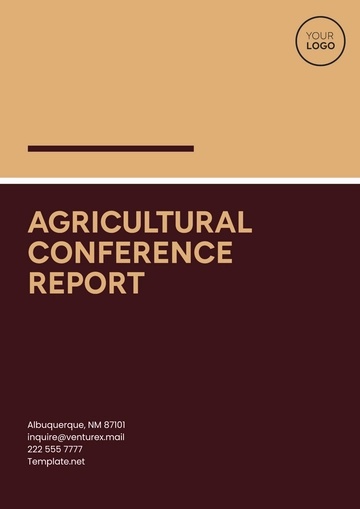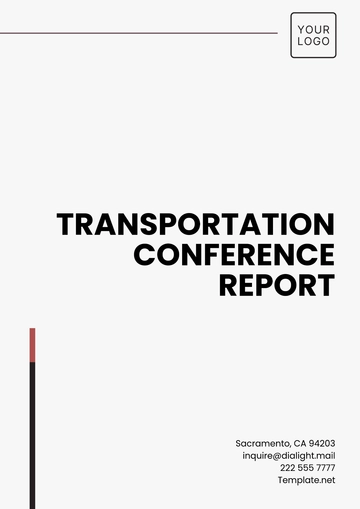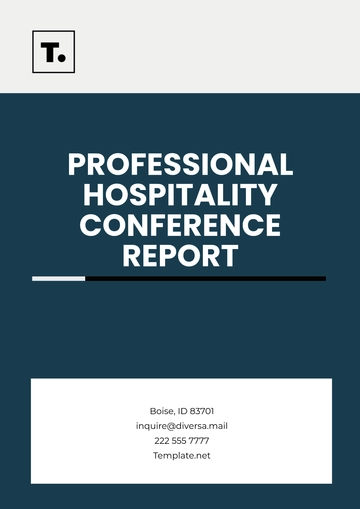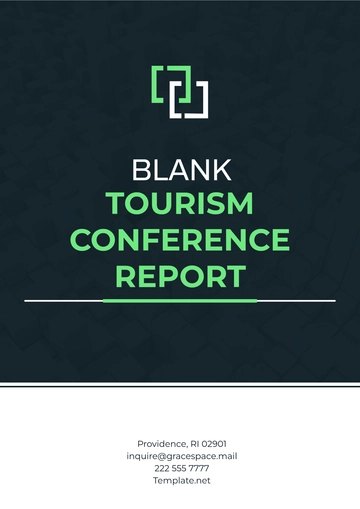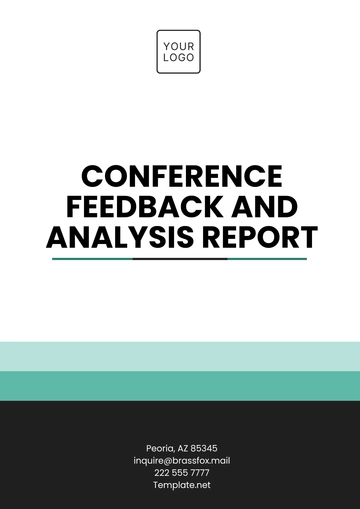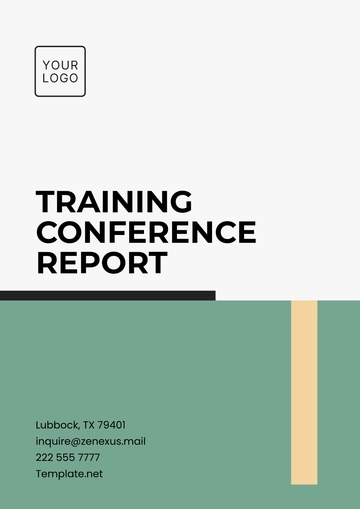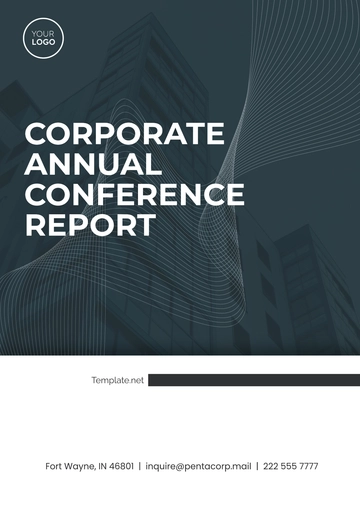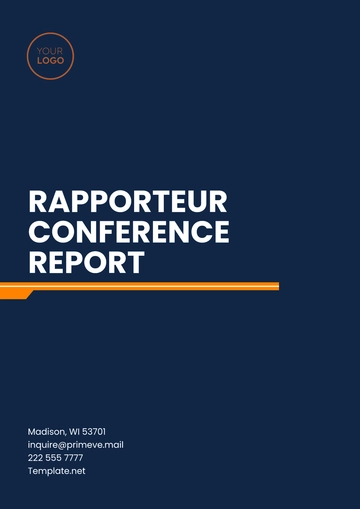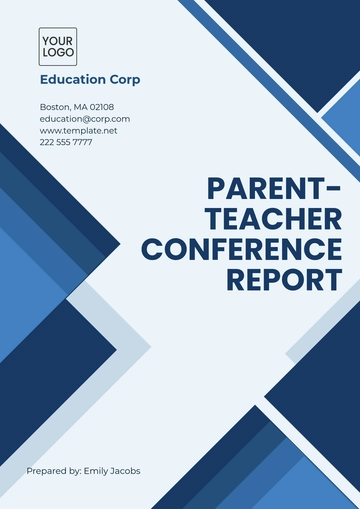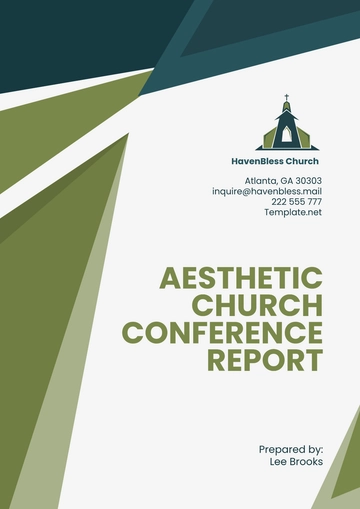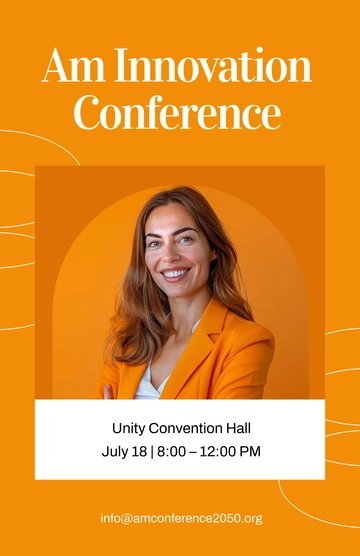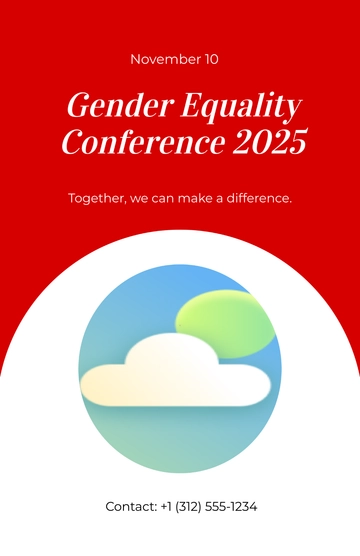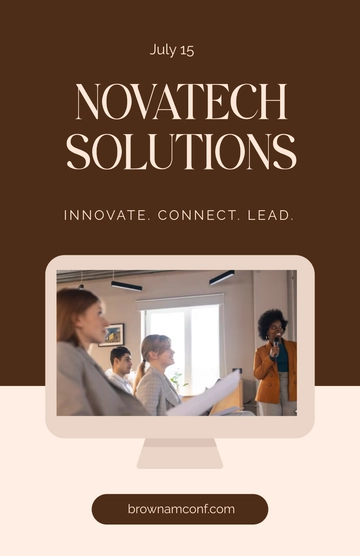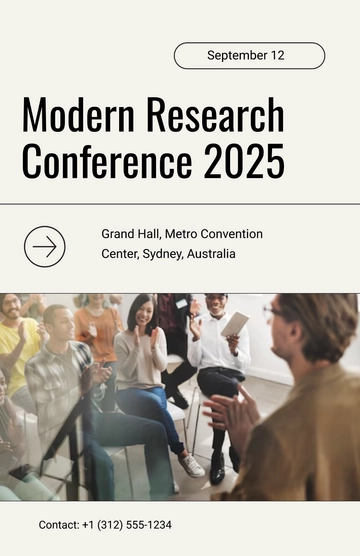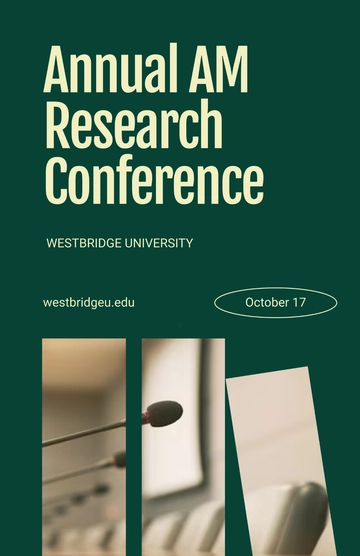Free Professional Hospitality Conference Report

Prepared by:
[YOUR NAME]
[YOUR COMPANY NAME]
Introduction
The Professional Hospitality Conference, held from September 12-14, 2050, at the Grand Convention Center, served as a premier gathering for over 1,500 industry professionals, experts, and academics to explore the evolving trends, challenges, and innovations in the hospitality sector. This comprehensive report highlights the key takeaways from the conference’s diverse sessions, workshops, and panel discussions, offering a deeper understanding of the industry’s future and the actionable insights shared by thought leaders.
The conference aimed to foster collaboration, innovation, and knowledge exchange among attendees. With topics spanning sustainability, technology, guest experience, and crisis management, the event sought to equip hospitality professionals with the tools to navigate the complexities of an ever-evolving industry landscape.
Conference Overview
The event attracted more than 1,500 participants, representing hotels, resorts, technology providers, academia, and other sectors within the hospitality industry. Over three days, the conference offered more than 50 sessions, focusing on pressing issues such as sustainable practices, technology integration, guest experience optimization, and crisis management. The diverse format included keynote addresses, panel discussions, interactive workshops, and extensive networking opportunities, providing attendees with invaluable insights to adapt to future challenges.
Keynote Addresses
The conference featured three distinguished keynote speakers who addressed the future of hospitality through different lenses: sustainability, technology, and leadership.
Dr. Sarah Gibson - The Future of Sustainable Hospitality
Dr. Sarah Gibson, a leading expert in sustainable practices, highlighted the urgency of adopting eco-friendly initiatives within the hospitality sector. She emphasized that integrating green technologies, such as energy-efficient systems, waste management, and water conservation measures, not only benefits the environment but also enhances the brand reputation and guest loyalty. Dr. Gibson’s keynote provided clear, actionable strategies for hotels to reduce their carbon footprint while improving operational efficiency.
Mr. David Lin - The Impact of Digital Transformation on Guest Experiences
Mr. David Lin, a renowned technology leader, explored the transformative role of digital tools and AI technologies in enhancing guest experiences. He discussed how leveraging artificial intelligence (AI) for personalized services—from tailored recommendations to customized room preferences—has revolutionized guest interactions. Mr. Lin also emphasized the growing importance of data analytics in predicting guest behavior and delivering highly personalized services that exceed expectations.
Ms. Angela Rivera - Innovative Leadership in Times of Crisis
Ms. Angela Rivera, a crisis management expert, focused on the critical role of leadership during times of disruption. Drawing on her extensive experience, she shared strategies for navigating crisis situations—ranging from PR emergencies to operational disruptions—while maintaining a calm, decisive, and compassionate approach. Her keynote stressed the importance of transparent communication, agility, and employee support in crisis management.
Session Highlights
The conference featured a range of thematic tracks, each addressing vital areas of development within the hospitality industry. Below is a summary of key sessions from each track:
Track | Session Title | Speaker(s) | Key Takeaways |
|---|---|---|---|
Sustainability | Implementing Eco-Friendly Practices in Hotels | Michael Chan | Focused on strategies for reducing energy consumption, waste reduction, and sustainable sourcing, emphasizing practical steps for eco-friendly operations. |
Technology | The Role of AI in Personalizing Guest Experience | Dr. Priya Anand | Explored the growing importance of AI in creating personalized guest experiences, including predictive analytics for tailored services. |
Guest Experience | Designing Memorable Guest Journeys | Emily Foster | Discussed techniques for curating exceptional guest experiences, from pre-arrival to post-departure, with an emphasis on emotional connections. |
Crisis Management | Handling PR Crises Effectively | Mark Lees | Provided actionable strategies for managing PR crises, emphasizing the role of transparency and consistent messaging. |
Workshop Highlights
In addition to the sessions, the conference hosted several interactive workshops, designed to offer hands-on experience and practical tools for implementing strategies discussed during the sessions:
Green Hospitality Operations: Participants gained practical knowledge on reducing carbon footprints through energy-efficient building technologies, sustainable sourcing, and waste reduction strategies.
Digital Tools for Hotels: This workshop covered the latest digital tools and software that enhance hotel management, from booking platforms to AI-driven customer service tools, focusing on streamlining operations and improving efficiency.
Crisis Simulation: A live crisis management simulation allowed participants to step into real-world emergency scenarios, developing quick-thinking skills and effective response strategies for various crises in hospitality.
Panel Discussions
Several dynamic panel discussions delved into the future of hospitality, providing expert opinions on key industry shifts:
Innovation in Hospitality: Panelists discussed how technology and innovation are changing customer expectations and driving service delivery improvements. Topics included automation, self-service kiosks, and AI-enabled chatbots.
Diversity and Inclusion in Hospitality: This panel emphasized the need for diverse perspectives within hospitality management, examining how inclusive practices not only improve the work environment but also enhance the guest experience.
The Future of Hospitality: Experts predicted the next decade in hospitality, discussing trends such as virtual tourism, the rise of eco-conscious travelers, and the increased reliance on smart technologies in the guest experience.
Networking Opportunities
The conference offered ample opportunities for networking and collaboration, including cocktail receptions, meet-and-greet events, and sector-specific networking sessions. These events allowed participants to engage with industry leaders, share insights, and explore potential partnerships. Additionally, the informal settings fostered meaningful discussions on industry trends and personal experiences.
Conclusion
The Professional Hospitality Conference 2050 successfully addressed key challenges and innovations in the hospitality industry, offering attendees valuable insights through impactful keynotes, workshops, and panel discussions. As the sector adapts to technological advancements, sustainability imperatives, and evolving guest expectations, participants are now better equipped to lead these changes. By embracing innovation, sustainability, and strong leadership, the hospitality industry is poised for continued success, with actionable strategies to shape its future. This report summarizes the key takeaways and forward-looking perspectives shared during the event.
- 100% Customizable, free editor
- Access 1 Million+ Templates, photo’s & graphics
- Download or share as a template
- Click and replace photos, graphics, text, backgrounds
- Resize, crop, AI write & more
- Access advanced editor
The Professional Hospitality Conference Report Template from Template.net is fully editable and customizable to suit your specific needs. Using our AI Editor Tool, you can easily modify content, layout, and design to create a professional, polished report. Ideal for hospitality events, this template ensures clarity and precision in presenting key insights and discussions.
You may also like
- Sales Report
- Daily Report
- Project Report
- Business Report
- Weekly Report
- Incident Report
- Annual Report
- Report Layout
- Report Design
- Progress Report
- Marketing Report
- Company Report
- Monthly Report
- Audit Report
- Status Report
- School Report
- Reports Hr
- Management Report
- Project Status Report
- Handover Report
- Health And Safety Report
- Restaurant Report
- Construction Report
- Research Report
- Evaluation Report
- Investigation Report
- Employee Report
- Advertising Report
- Weekly Status Report
- Project Management Report
- Finance Report
- Service Report
- Technical Report
- Meeting Report
- Quarterly Report
- Inspection Report
- Medical Report
- Test Report
- Summary Report
- Inventory Report
- Valuation Report
- Operations Report
- Payroll Report
- Training Report
- Job Report
- Case Report
- Performance Report
- Board Report
- Internal Audit Report
- Student Report
- Monthly Management Report
- Small Business Report
- Accident Report
- Call Center Report
- Activity Report
- IT and Software Report
- Internship Report
- Visit Report
- Product Report
- Book Report
- Property Report
- Recruitment Report
- University Report
- Event Report
- SEO Report
- Conference Report
- Narrative Report
- Nursing Home Report
- Preschool Report
- Call Report
- Customer Report
- Employee Incident Report
- Accomplishment Report
- Social Media Report
- Work From Home Report
- Security Report
- Damage Report
- Quality Report
- Internal Report
- Nurse Report
- Real Estate Report
- Hotel Report
- Equipment Report
- Credit Report
- Field Report
- Non Profit Report
- Maintenance Report
- News Report
- Survey Report
- Executive Report
- Law Firm Report
- Advertising Agency Report
- Interior Design Report
- Travel Agency Report
- Stock Report
- Salon Report
- Bug Report
- Workplace Report
- Action Report
- Investor Report
- Cleaning Services Report
- Consulting Report
- Freelancer Report
- Site Visit Report
- Trip Report
- Classroom Observation Report
- Vehicle Report
- Final Report
- Software Report
